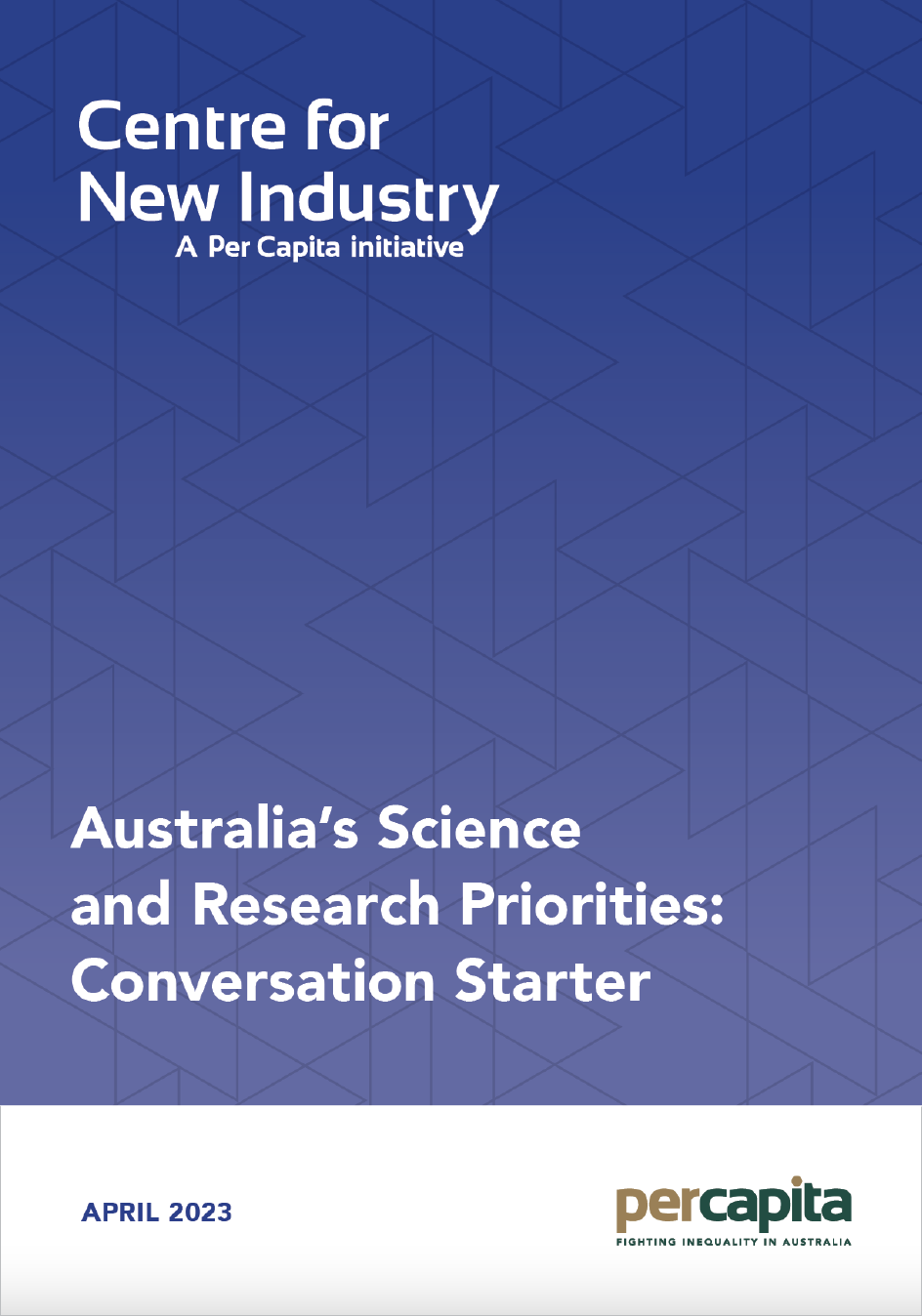Australia depends on science and research to increase productivity, achieve sustainable economic growth, create jobs, and improve national well-being. Australian science also contributes to the global stock of knowledge across a broad range of areas. Like other countries, our capacity to support research is finite. With diverse investments in research across multiple agencies and many processes, we must ensure that we build our capacity to pursue research of particular importance to us as a nation.
A new set of national science priorities brings welcome attention to the issue of science and its value to society. But the content and scope of the underlying science policy debate – with its focus on budgets and breakthroughs – are narrow and limiting. Focusing on money masks legitimate and important questions about science and its role in our society and about the complicated nature of scientific progress by focusing on the latest isolated discovery. This conversation-starter consultation process brings welcome attention to science and its value to society. But these debates have tended to revolve tightly around a narrow set of concerns and then fade from view.
Science makes important contributions to economic prosperity through the generation of new knowledge, new technologies, new skills and new approaches to problems. This helps explain why governments invest significant public funds in it and why it can be more durable than others. But the policy consensus about science in innovation has masked two important issues:
- that our current understanding of the links between public support for science and the outcomes from that science remains quite limited; and
- that there is a clear and important role for government to take into account more than economics alone when making policy decisions about science.
This submission is focused on expanding the science policy debate to include a wider range of important issues related to the appropriate role of science in a healthy democracy. We aim to provide science policy decision-makers with principles and tools to help them better navigate these complex issues and work toward a more democratic, forward-thinking, and productive scientific enterprise. We argue that a renewed focus on science policy – related to but distinct from innovation policy – can improve the conduct of both science and policymaking and deliver enhanced economic, social and environmental benefits from the considerable public investment in science. We conclude that the Australian Government has a clear opportunity and role in encouraging innovation and expanding and improving its approach to science policy to realise these benefits.

